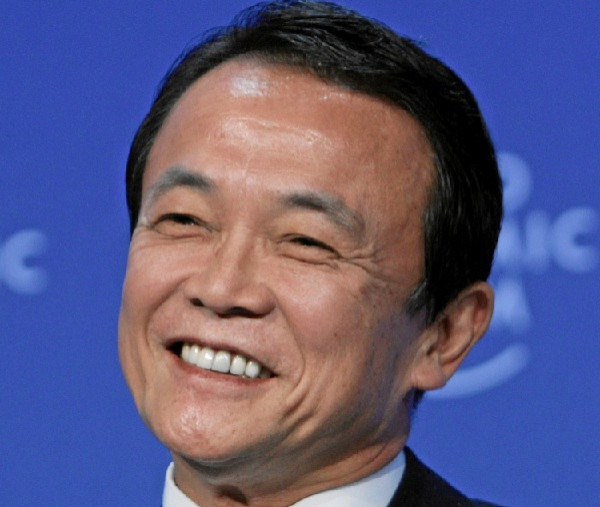Japan’s Finance Minister Suggests Elderly Should Die Quickly To Ease Health Care Burdens

Japan’s finance minister has a novel suggestion for reducing his country’s massive debt crisis -- kill off elderly people quickly in order to save the government from making costly health care expenditures.
Taro Aso, who is also the deputy prime minister, told a meeting of the National Council on Social Security Reforms on Monday: "Heaven forbid if you are forced to live on when you want to die. You cannot sleep well when you think it's all paid by the government. This won't be solved unless you let them hurry up and die.”
He added: "I don't need that kind of care. I will die quickly.”
Reportedly, he referred to elderly folks who cannot feed themselves as “tube people,” adding that the health and welfare ministry is "well aware that it costs several tens of millions of yen" every month to treat one patient during the final days of his life.
Aso quickly tried to apologize for his remarks on Tuesday.
"I said what I personally believe, not what the end-of-life medical care system should be," he told reporters.
"It is important that you can spend the final days of your life peacefully."
But it is unlikely that Aso's comments will be forgotten in a country where the aged are venerated and the aged are also becoming a significant part of the population.
According to reports, one-fourth of all Japanese citizens – about 32 million people -- are now above the age of 60. Over the next 50 years, that figure will rise to 40 percent.
As the population ages, the pool of working-age people who must support the elderly is ever shrinking, creating a crisis in the country’s health care management and overall finances.
The Guardian newspaper reported that in Japan, 40 percent of the nation’s households receive some kind of welfare.
Not surprisingly, the newly installed government of Prime Minister Shinzo Abe is seeking to cut welfare expenditures in its next budget.
But Aso, 72, who also briefly served as prime minister, has a long history of making controversial and inflammatory statements.
In 2001, he said that Japan should seek to become a country where "the richest Jews would want to live."
That same year, he sparked outrage by making disparaging remarks about Prime Ministry candidate Hiromu Nonaka, who is part of the Burakumin outcaste group, suggesting he was unqualified for such high office due to his background.
In 2005, during a ceremony at the Kyushu National Museum, Aso boasted that Japan has "one culture, one civilization, one language and one ethnic group.”
In 2008, while he was prime minister, Aso suggested elderly people should take better care of themselves to spare the taxpayer from having to support them.
"I see people aged 67 or 68 at class reunions who dodder around and are constantly going to the doctor," he told a meeting of economists, according to the Guardian.
"Why should I have to pay for people who just eat and drink and make no effort? I walk every day and do other things, but I'm paying more in taxes."
Over the years he also praised Japan’s brutal colonial occupation of Taiwan (which he said explains why the country now has such high literacy rates) and once claimed that American diplomats could not gain trust in the Middle East because of their “blue eyes and blonde hair.”
Aso, one of the wealthiest Japanese politicians, is a veritable blueblood – indeed, he is the grandson of legendary Prime Minister Shigeru Yoshida, who steered Japan in the post-World War II period. Aso’s wife, Chikako, is the daughter of Prime Minister Zenkō Suzuki, who reigned in the early 1980s.
Additionally, the Roman Catholic Aso is the elder brother of Princess Tomohito of Mikasa, a member of the Japanese Imperial Family.
© Copyright IBTimes 2025. All rights reserved.





















